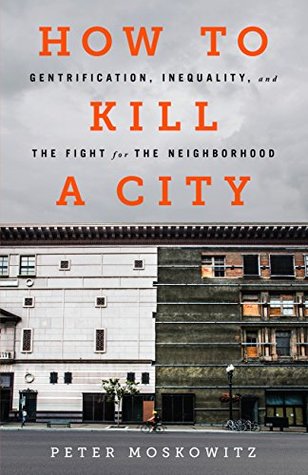More on this book
Community
Kindle Notes & Highlights
Read between
March 18 - April 7, 2024
“People are just tired. They’ve fought, and they’ve sometimes won, but they’re tired,” she said. “Developers don’t get tired. Money doesn’t get tired.”
With politicians doing so little, and with the housing crisis affecting essentially every city in the United States, we’re left with two choices: (1) further contort our cities and our lives to the will and whims of capital, or (2) build a movement capable of addressing our housing crisis.
If I was going to be complicit in this process, I wanted to know what was really going on.
Gentrification is not about individual acts; it’s about systemic violence based on decades of racist housing policy in the United States that has denied people of color, especially black people, access to the same kinds of housing, and therefore the same levels of wealth, as white Americans.
Someone who learned about gentrification solely through newspaper articles might come away believing that gentrification is just the culmination of several hundred thousand people’s individual wills to open coffee shops and cute boutiques, grow mustaches and buy records. But those are the signs of gentrification, not its causes.
Gentrification, at its deepest level, is really about reorienting the purpose of cities away from being spaces that provide for the poor and middle classes and toward being spaces that generate capital for the rich.
She told me she has no problem with white people moving to the area, but she wishes they had an understanding of the power they carry.
“Private investment shapes cities, but social ideas (and laws) shape private investment. First comes the image of what we want, then the machinery is adapted to turn out that image.”
As our cities’ landscapes have changed, we have too, increasingly viewing ourselves not as community members with a responsibility to each other but as purchasers of things and experiences.
“Redevelopment is like an oil spill, with a single cause and a responsible party; gentrification is like air pollution, a lot of unlinked individuals make contributions whose effect is only cumulatively disastrous.”


